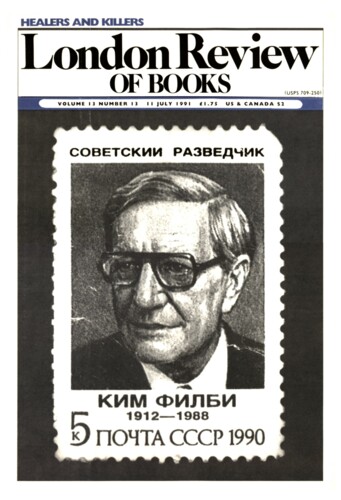Seeing things
Late afternoon on the prairie. We were looking
for birds. My old friend Michael was amazed
at what we said we saw: such far-off dots,
how could we pick them out? still less remark,
‘eastern and western kingbirds.’ We all three
wore specs. ‘You must have great peripheral vision,’
he finally pronounced – as if we scanned
the field like radar with a sensitive edge,
as if we spotted things by accident,
out of the corner of a thoughtless eye.
We tried to say that knowing where to look
we saw things: where they were, one other detail
might be enough to name them; we were finding,
in the pink light, what we knew might be there.
I don’t think he believed us.
Then this summer
in England by some oaks and poplar trees
I stood still in a field while swifts were picking
invisible insects from the flow of air.
To them I was a post: their eyes were focused
and fixed on space some yards ahead of them,
to catch a thousand flies an hour. They leave
the bees and take the stingless drones. They scream
with their mouths full – and when they sighted me
I was the distance of a fly away:
the target distance. Then they swerved aside,
seeing obstruction.
They can change the focus,
of course. When they migrate, to see the map
below, they focus on infinity.
And we can focus on nothing, as I do now,
to think of how we looked at Robert’s farm.
Inflation
What happened to the money
laid out for perpetual masses
in the Middle Ages? The souls
astonished and half-free
from the pains of purgatory
wonder what their obols,
crowns, half-crowns and angels
were spent on. Repairing gargoyles
and whitening surplices?
Restaining time-pale glass?
Having put down enough
to flood the town with beer,
dress everyone for miles
in silk, and buy love
for the unkind and rough,
they find the daily silence
a horribly painful puzzle –
stuck, as they are, to the gills
in penitential fire:
what has happened to prayer?
Could the earth have been destroyed?
they are asking, as they turn
in the grave sarabande
of torment, grilled and flayed.
Can it possibly be that God
has changed the rate of payment
for mortgaged souls, or even
merged the places of punishment
and raised the price of heaven?
Or are we just forgotten?
Miss Vermilion
Should teachers be like us
or beautifully different? I was ten
and would have married Miss Vermilion.
Her scarlet lips blew, not kisses
but knowledge toward me for a year,
and I remember none of it, only her.
Or rather, I admit I must be carrying
somewhere her words: improper fraction
perhaps, militia, or Des Moines,
in the string-bag of my vocabulary,
but smeared so thin across the neurones
there’s no retrieval of the names of donors.
I would like to thank her, if she is human
somewhere still, not dark or slim
now, but lovely as once, in the shaded schoolroom –
mysterious giver, like those ancient women
whose babies gave a soul
to a new bridge, or voice to a village bell.
Send Letters To:
The Editor
London Review of Books,
28 Little Russell Street
London, WC1A 2HN
letters@lrb.co.uk
Please include name, address, and a telephone number.

